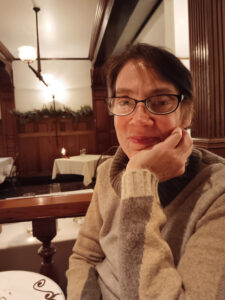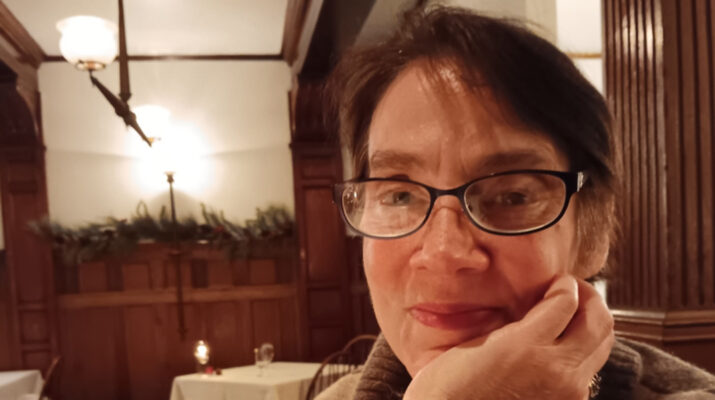Cate Richardson-Henley, a licensed clinical social worker in Oneonta, talks about her profession, desire to help others, the rewards and chal-lenges of being a social worker
By Barbara Pierce
Q: How did you become interested in a career as a clinical social worker?

Cate Richardson-Henley: I’ve always been interested in helping peo-ple. I always wanted to do therapy. When I was in college, I started my social work career by volunteering at a hotline for battered women. This was in the 80s and got me interested in doing this as a career.
Also, I’d been helped greatly by my own therapy. It made me think: “I want to give this kind of help to other people.” By being in therapy for myself, I was attracted to doing clinical work with others.
Twenty-nine years ago, I got my master’s degree in social work and started my therapy career. I began my therapy career as a child and family therapist, working in the children’s mental health clinic at St. Mary’s in Amsterdam for more than six years.
Following that, after working in some case management-type jobs, I worked in a psychotherapy practice in the capitol region for a decade.
Four years ago, I started my own private practice. To keep things simple, I take two insurances and private pay. As it was at the start of COVID when I began, I set up as a virtual office, seeing people online. Now most of my practice is through either virtual or phone conversations with people throughout New York state.
I thought I’d stay virtual. But I’m finding that some people have a bias against virtual. So I’m working to find a larger office space near Oneonta so I can see people in person.
Q: What kind of training did you have?
A: I got my BA in women’s studies from Brown University in Providence, Rhode Island. For my master’s degree in social work, I graduated from the two-year program at SUNY Albany. After having over six years of supervised experience, I am a licensed clinical social worker with an “R” number, which some insurance companies require.
Part of this profession is that you have to keep growing and keep current. New York state requires 36 hours of training every three years and I’ve been doing that. I’ve gone through multiple trainings and have expertise in LGBTQ+ issues; I will begin a six-month training on grief counseling soon.
Q: Is there anything you specialize in?
A: I specialize in the areas I know most about. One is LGBTQ+; as a lesbian, I’ve had problems with discrimination and have insight into the struggles people have. I assist people with self-acceptance, coping with life in an often-invalidating world, dealing with families and gender transitions.
The vast majority of my clients are cis, straight and supportive [cis describes a person whose gender identity corresponds to their sex assigned at birth.] However, I would welcome more clients like me.
I treat people with a broad variety of mental health issues. I work with adults and couples to ease their stress, to find a sense of acceptance and inner peace within themselves and in their relationships, to improve their moods, to help them view themselves, their environment and their families in a more positive way and to give them tools for coping, relaxation, and communicating more effectively.
Specifically, I treat anxiety and depression, bipolar disorder and couples. Also, as my spouse is disabled and I had an accident when I fell on the ice, which made me quite disabled for a while and due to which I still suffer some pain, I treat people with chronic pain and illness.
Q: What are the rewards of your career?
A: I talk to people for a living and help them; what could be better! It’s a great thing; I love this job!
Q: What are the challenges?
A: There are mountains of paperwork! I’m not fond of the administrative part of it — billing, insurance, etc.
Also, it’s a challenge to get referrals; I’d like to have more clients. My mentor told me it took him seven years in private practice before he could stop beating the bush. I still need to do that.
Q: Do you take insurance?
A: I take two types of insurance (CDPHP and MVP) and private pay. I offer a sliding scale. You can find my fees on my website.
For more information on Cate Richardson-Henley, visit www.phonecounselingservices.com.

